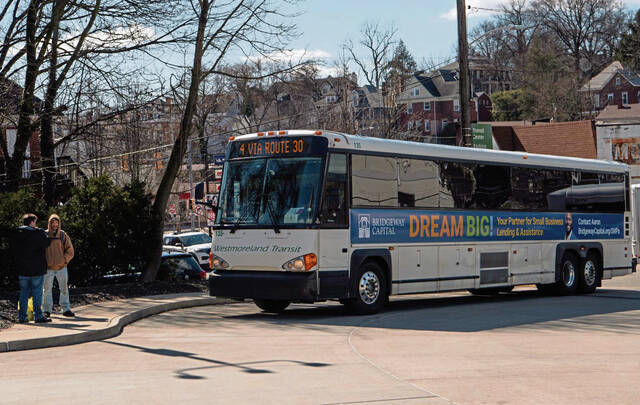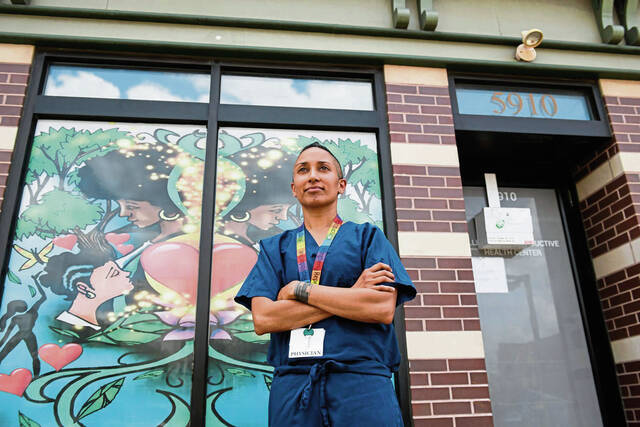The climate crisis is not coming: it is here now. It is already impacting our communities, our economy and even our national security. The transportation sector is the largest contributor to greenhouse gas emissions leading to climate change in the United States, and so meaningful climate solutions must involve carefully evaluating and prioritizing our investments in transportation.
We’re lucky our governor is a leader among states in tackling the crisis, in two ways: through smart transportation policy around greenhouse gas emissions goal setting and reporting, and in his recent budget proposal to increase funding for public transportation in all 67 counties across the commonwealth.
Late last year, the U.S. Department of Transportation issued a new rule that requires state departments of transportation to measure greenhouse gas emissions from the National Highway System and establish targets to lower those emissions. The rule also mandates the targets and results be made public. This is crucial because transparency allows all of us to hold leaders accountable and to support efforts to meet those goals. We can track progress, identify shortcomings and demand improvements.
Gov. Josh Shapiro has made sure Pennsylvania is one of the first states to set standards and release them.
The Biden rule does not establish targets or regulate states’ transportation plans; instead, each state sets its own targets and adopts its own strategies for reaching them. Shapiro has done this by announcing a 2024 performance target of -5% for greenhouse gas emissions from transportation projects. While this is not an ambitious goal, it is an important first step; with the record amounts of federal funds already flowing to states thanks to the Infrastructure Investment and Jobs Act, there is no time to waste to ensure that the projects are being built to reduce harmful carbon emissions, rather than increase them.
Our state is now prepared to use the historic federal funding of the bipartisan infrastructure bill to create jobs, rebuild our crumbling bridges, invest in transit, walking and biking … and to combat climate change.
The other reason to act with urgency is because we know Big Oil is doing everything they can to stop implementation of this rule and will almost certainly join with Republicans to challenge this new rule in court in an attempt to have it overturned. But if states, like ours, move quickly to implementation and set ambitious goals now, it will be a lot harder for Big Oil. It’s always harder to repeal or roll back plans after states have already started, than it is to stop them before they’ve even begun.
The benefits of this rule are clear. With the information the rule will bring to light, Pennsylvania will make wiser transportation investments. Environmentally, that would mean cleaner air and tangible steps towards tackling climate change. Economically, that could encourage investment in public transportation, discourage expansion of greenhouse gas producing highways and roads, and promote innovation in green technology to decrease highway pollution. Healthwise, smarter transportation investments would reduce emissions, which means fewer air quality-related health issues, especially in communities of color where the impact of our current carbon footprint is felt the most.
Shapiro has also shown smart transportation and climate leadership by proposing an increased allocation of the sales tax towards enhancing transit service frequency, reliability and availability in all 67 Pennsylvania counties. Pennsylvania’s greenhouse gas rule adoption works in tandem with this proposed $282 million investment in the operations of our transit systems, by ensuring that we have the infrastructure to make our transportation system safe and accessible and that we have buses and trains running when we need them.
Which is why the actions by Shapiro are so important. This is effective policy making that expands economic opportunity for communities from Scranton to State College, while advancing a sustainable climate for our kids.
Laura Chu Wiens is executive director of Pittsburghers for Public Transit, with 12 years of experience in organizing for expanded and equitable transit, and a member of Transit for All PA!








